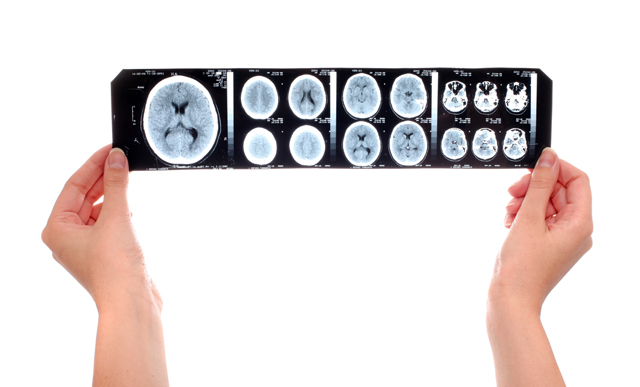
Cognition and Cognitive Science
Get access to cognitive assessment exercises
Boost your neuroplasticity and cognition
Help improve your cognitive state
What is cognition? The word comes from the Latin root cognoscere, which means “to know”. By cognition, we are usually referring to everything that is related to knowledge. In other words, the accumulation of information that we have acquired through learning or experience.
The most accepted definition is the ability to process information through perception (stimuli that we receive through our different senses), knowledge acquired through experience, and our personal characteristics that allow us to integrate all of this information to evaluate and interpret our world. It is the ability that we have to assimilate and process the information that we receive from different sources (perception, experience, beliefs, etc.) and convert them into knowledge. It includes different cognitive processes, like learning, attention, memory, language, reasoning, decision making, etc., which are part of our intellectual development and experience.
Different disciplines have studied it, like neurology, psychology, anthropology, philosophy, etc. However, it was cognitive psychology that started to look in-depth intohow processing information influences behavior and what relation different mental processes had in the acquisition of knowledge. Cognitive psychology emerged in the late 1950's as the opposition to the prevalent behaviorism of the time. Authors such as Piaget and Vigotsky revolutionized the scientific panorama with their theories about development and cognitive learning, which are still relevant today. Starting in the 60s, interest in cognition and cognitive skills grew exponentially, and the research that it generated allowed us to learn more about these processes.
Advancements in neuroimaging has helped to contribute physiological and neuroanatomical understanding to these studies. This is important for understanding cognitive processes and how they influence our behavior and emotions.

Cognitive Processes
What are cognitive processes? We can understand cognitive processes as the procedures we use to incorporate new knowledge and make decisions based on said knowledge. Different cognitive functions play a role in these cognitive processes: perception, attention, memory, reasoning… Each of these cognitive functions work together to integrate the new knowledge and create an interpretation of the world around us.
- ATTENTION AS A COGNITIVE PROCESS: Attention is the cognitive process that allows us to concentrate on a stimuli or activity in order to process it more thoroughly later. Attention is a fundamental cognitive function for the development of daily situations, and it is used in the majority of tasks that we carry-out day-to-day. In fact, it has been considered a mechanism that controls and regulates the rest of the cognitive processes: from perception (we need attention to be able to pay attention to the stimuli that don't reach our senses) to learning and complex reasoning.
- MEMORY AS A COGNITIVE PROCESS: Memory is the cognitive function that allows us to code, store, and recover information from the past. Memory is a basic process for learning, as it is what allows us to create a sense of identity. There are many types of memory, like short-term memory, which is the ability to retain information for a short period of time (remember a telephone number until we can write it down on paper), and long-term memory, which are all of the memories that we keep for a long period of time. Long-term memory can be broken into smaller groups, declarative memory and procedural memory. Declarative memory consists of the knowledge that was acquired through language and education (like knowing that World War II ended in 1945), as well as knowledge learned through personal experiences (remembering what my grandma used to make for me). Procedural memory refers to learning though routines (learning how to drive or ride a bike). Other types of memory are auditory memory, contextual memory, naming, and recognition.
- PERCEPTION AS A COGNITIVE PROCESS: Cognitive perception allows us to organize and understand the world through stimuli that we receive from our different senses, like sight, hearing, taste, smell, and touch. While most people are familiar with the common senses, there are some other, less-known senses, like propioception (stimuli which unconsciously perceives our position in space and judges spatial orientation) and interoception (which is the perception of our organs in our bodies. It is what allows us to know when we're hungry or thirsty). Once the stimuli is received, our brain integrates all of the information, creating a new memory.
- LANGUAGE AS A COGNITIVE PROCESS: Language is the ability to express our thoughts and feelings through spoken word. It is a tool that we use to communicate and organize and transmit information that we have about ourselves and the world. Language and thought are developed together and are closely related, they mutually influence each other.
- THOUGHT AS A COGNITIVE PROCESS: Thought is fundamental for all cognitive processes. It allows us to integrate all of the information that we've received and to establish relationships between events and knowledge. To do this, it uses reasoning, synthesis, and problem solving (executive functions).
- LEARNING AS A COGNITIVE PROCESS: Learning is the cognitive process that we use to incorporate new information into our prior knowledge. Learning includes things as diverse as behaviors or habits, like brushing our teeth or learning how to walk, and knowledge that we learn through socialization. Piaget and other authors have talked about cognitive learning as the process of information entering our cognitive system and changing it.

The cognitive processes can happen naturally or artificially, consciously or unconsciously, but they usually happen fast. These cognitive processes work constantly and without us realizing them. For example, when we are walking on the street and we see a stoplight turn red, we start the cognitive process that tells us to make a decision (cross or don't cross). The first thing that we do is focus our attention on the stoplight, through our sight we can see that it is red. In just milliseconds, we recall from our memory that when the stoplight is red you shouldn't cross. This is probably where we make our first decision: wait until the light turns green, or look right and left (shifting our attention again) to see if any cars are coming and make the decision to cross quickly.
Can You Improve Cognition?
Is it possible to improve cognition? Below is a tool oriented to improve cognition and cognitive performance:
THE COGNITIVE STIMULATION PROGRAM FROM COGNIFIT: This program was designed by a team of neurologists and cognitive psychologists that study synaptic plasticity and neurogenesis processes. You only need 15 minutes a day (2-3 times a week) to stimulate your cognition. This program is available online, and has specific programs for personal use, researchers, health professionals, and schools.
The cognitive stimulation exercises from CogniFit effectively assess more than 20 fundamental cognitive functions, which are clearly defined and subject to an objective target control, which provides standardized results of age and demographic criteria based on thousands of results.
The different interactive exercises are presented as fun brain games that you can practice on your computer. After each session, CogniFit will present a detailed picture, showing the evolution of the user's cognitive state. It also compares their cognitive performance to other users.
If neuroscience and studying brain plasticity has shown us anything, it is that the more we use a neural circuit, the stronger it gets. The cognitive stimulation program from CogniFit works to explore our cognitive processes. Once we are able to understand each individual's cognitive state, we are offer them a personalized cognitive training program. Focusing on the most challenging tasks will ensure that we are creating and establishing new neural connections, which will get stronger and stronger the more that they are trained.

REDUCE STRESS LEVEL: Stress increases cortisol levels, which attacks the myelin of the axons and impedes information from being efficiently transmitted. If we are able to reduce the stress in our lives, we may be able to improve our cognition, because reducing stress improves synaptic connections. Keeping a positive attitude makes us more creative when solving problems, and probably makes us more cognitively flexible.
MEDITATION: Meditation can also help our cognition. In the last few years, more and more studies have been looking at the effects of meditation on cognitive processes. It requires concentration and conscious attention, which as we said, are important for creating new functional circuits. The study seems to support this idea, and meditation has been related to improvements in attention, memory, executive functions, processing speed, and general cognition.
PHYSICAL EXERCISE: Doing some exercise can also improve it. It doesn't need to be particularly intense activities. In fact, walking 45 minutes, 3 times a week seems to improve memory and reasoning (executive functions), and practicing Tai-Chi improves mainly executive functioning.
References:Shatil E (2013). Does combined cognitive training and physical activity training enhance cognitive abilities more than either alone? A four-condition randomized controlled trial among healthy older adults. Front. Aging Neurosci. 5:8. doi: 10.3389/fnagi.2013.00008 • Korczyn AD, Peretz C, Aharonson V, et al. - Computer based cognitive training with CogniFit improved cognitive performance above the effect of classic computer games: prospective, randomized, double blind intervention study in the elderly. Alzheimer's & Dementia: The Journal of the Alzheimer's Association 2007; 3(3):S171. • Shatil E, Korczyn AD, Peretzc C, et al. - Improving cognitive performance in elderly subjects using computerized cognitive training - Alzheimer's & Dementia: The Journal of the Alzheimer's Association 2008; 4(4):T492. • Verghese J, Mahoney J, Ambrose AF, Wang C, Holtzer R. - Effect of cognitive remediation on gait in sedentary seniors - J Gerontol A Biol Sci Med Sci. 2010 Dec;65(12):1338-43. • Evelyn Shatil, Jaroslava Mikulecká, Francesco Bellotti, Vladimír Burěs - Novel Television-Based Cognitive Training Improves Working Memory and Executive Function - PLoS ONE July 03, 2014. 10.1371/journal.pone.0101472. • Gard T, Hölzel BK, Lazar SW. The potential effects of meditation on age-related cognitive decline: a systematic review. Ann N Y Acad Sci. 2014 Jan; 1307:89-103. doi: 10.1111/nyas.12348. 2. • Voss MW et al. Plasticity of brain networks in a randomized intervention trial of exercise training in older adults. Front Aging Neurosci. 2010 Aug 26;2. pii: 32. doi: 10.3389/fnagi.2010.00032.



